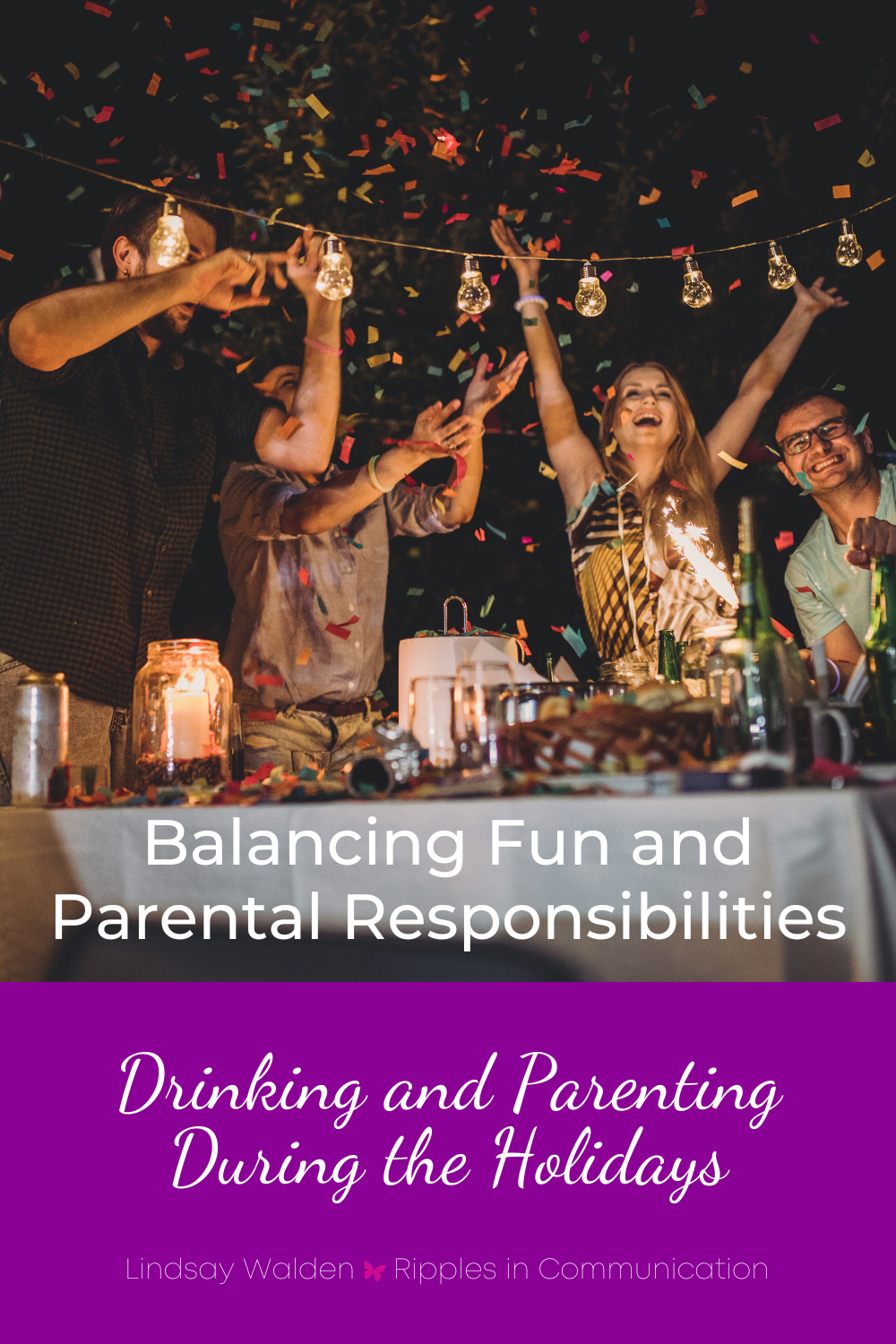How to Communicate with Your Partner About Drinking During Holidays
Ah, Halloween. A time for ghouls, ghosts, and, for many adults, a drink or two. As the leaves begin to fall and the festive season beckons, it's no surprise that many of us look forward to letting loose. But for many couples, especially with children, striking the right balance between revelry and responsibility can be a real challenge. If you feel like you're shouldering most of the burden while your partner is enjoying the festivities a bit too much, then this blog post is for you.
Have you gotten my FREE Relationship Communication Guide yet? Start building an authentic, conscious, and thriving relationship with your partner TODAY. Say goodbye to misunderstandings, conflicts, and missed opportunities for a deeper connection. These are the same tips and practical advice I give to my clients every day. With this guide, you'll be equipped to navigate any communication challenge and build a strong and fulfilling bond with your partner. Click the button below to enter your email address and I will send the guide to your inbox right away!
Learn strategies for managing alcohol consumption at family events. Make every occasion memorable and harmonious!
Understanding Societal Norms and Personal Responsibilities
You’re not alone in noticing that alcohol tends to flow freely during our festive celebrations. Many of us, as a society, often link certain celebrations with the ritual of drinking. While it's perfectly okay to enjoy a glass or two responsibly, it becomes problematic when one partner feels they're carrying all the weight. But, have you ever paused to think: Does your partner even know how you feel?
Communication is Key
It sounds simple, yet so many of us falter here. How often have you silently tallied up all the tasks you're handling? The costumes, the food prep, ensuring the kids are having a blast—all while your partner seems oblivious, busy chatting and drinking with the neighbors. But here's the thing: Have you ever voiced your feelings? Or, like many, are you waiting, hoping they'd notice and jump in to help without being asked? You see, expectation without communication, in most cases, sets the stage for disappointment.
Seeking Balance in Partnership
Imagine this: Your partner gets to enjoy Halloween (while still helping with the initial prep work), while you take the lead. Come Thanksgiving, the roles reverse. Sounds fair? Balance doesn't mean both of you doing the exact same thing at the exact same time—it's about ensuring both of you get a chance to kick back and relax, and both of you share responsibilities. This give-and-take makes for a more harmonious relationship.
The Danger of Dropping Hints
I'm going to be straightforward here: Hints don’t work! Sure, in an ideal world, your partner would pick up on your subtle cues. But relying on hints is like hoping they can read your mind. Direct communication, on the other hand, is clear and transparent. Instead of hoping they'll offer to help with the kids, ask them. Instead of being vague and saying, "Can you do something?" be specific: "Can you help with the costumes?"
Crafting Your Message with Kindness and Clarity
Now, I'm not saying you should confront your partner aggressively. Far from it. The trick is in how you frame your feelings. Aim for clarity, kindness, and directness. Speak from a place of emotion: "I feel overwhelmed with all the Halloween prep, and I'd love for us to share the responsibilities. How about you handle the food while I get the kids into their costumes?"
If you need some more support in making this conversation happen or the problem is a bit deeper, read on….
Dive deep into crafting honest conversations about alcohol and its role in relationships. Strengthen your bond with clarity.
8 Steps to Discuss Your Partner's Alcohol Consumption:
1. Choose the Right Moment:
Start the conversation at a calm and neutral time, not during a heated argument or immediately after an event where alcohol was consumed excessively. Timing is everything. You want the best outcome for both of you which means intentionally and mindfully setting the stage for a productive and loving conversation.
2. Approach with Empathy:
Remember that alcohol consumption can be a sensitive topic. Begin with understanding, expressing concern rather than accusation. A statement like, "I've noticed you've been drinking a bit more during our family events, and I wanted to chat about how it's affecting our family dynamic," can be a gentle opener.
3. Be Honest About Your Feelings:
Utilizing "I" statements can help convey your feelings without sounding accusatory. For example, "I feel overwhelmed when I'm left to handle the kids and the preparations alone." A lot of times, the significant other just doesn’t realize how much the other is taking on, especially when alcohol is in the mix. You matter and your feelings are valid. They need to know how you feel.
4. Offer Examples:
Give specific instances where their drinking might have affected the family experience. For example, "On Halloween, I felt I was the only one focused on the kids, and it would be great to have you more present." Be honest, upfront, and courageous in letting them know of specific times you have felt they weren’t helping or present due to alcohol.
5. Listen Actively:
Give them an opportunity to speak and express their perspective. Avoid interrupting, and genuinely try to understand their viewpoint. Try to not take anything personally. If the conversation veers into a non-productive energy, lovingly suggest they take a break, think about what was said, and come back together at a later date.
6. Propose Alternatives:
Maybe suggest alternating who drinks at events or setting a limit together. For instance, "How about we both limit ourselves to two drinks during the Halloween party so we can both enjoy the event and still be present for our family?"
7. Express Your Concerns for Their Well-being:
Highlight that it's not just about the division of responsibilities but also about their health and well-being. It’s okay to tell them you are concerned about their health and you are there to support them in making healthier decisions. Let them know you love them and want them around for a long time.
8. Seek Professional Guidance:
Sometimes outside help is necessary. Sometimes they can’t see the effect they are having on their family until someone from the outside clues them in. If the conversation becomes challenging or the issue persists, consider seeking the help of a therapist or counselor who specializes in substance use or couples therapy. It’s ok to ask for help.
Remember, you're not asking for a favor. You're seeking a partnership where both of you feel heard, valued, and understood. This Halloween, ensure it's not just the costumes that are in perfect sync but also the two of you, working hand in hand to create magical memories.
Discover 10 powerful affirmations designed to boost your self-worth, enhance communication, and foster deep connections in your relationships. Repeat daily for transformative results!







